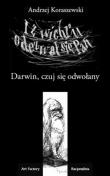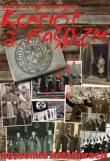
|
« The Bible The Jig Is Up! And We’re Dancing to It! The New York Times (the 1st Arts Page, 3/9, 2002.) had an article that verifies just about everything we atheists have been saying about the Jewish Bible. Were Abraham and Moses mere legends? Was the Exodus a fiction? Is the Jewish Bible to be believed? Abraham, the Jewish patriarch, probably never existed. Nor did Moses. The entire Exodus story as recounted in the Bible probably never occurred. The same is true of the tumbling of the walls of Jericho. And David, far from being the fearless king who built Jerusalem into a mighty capital, was more likely a provincial leader — a warlord — whose reputation was later magnified to provide a rallying point for a fledgling nation. Such startling propositions — the product of findings by archaeologists digging in Israel and its environs over the last 25 years — have gained wide acceptance among non-Orthodox rabbis. But there has been no attempt to disseminate these ideas or to discuss them with the laity-until now. The United Synagogue of Conservative Judaism, which represents the 1.5 million Conservative Jews in the United States, has just issued a new Torah and commentary, the first for Conservatives in more than 60 years. Called Etz Hayim („Tree of Life" in Hebrew), it offers an interpretation that incorporates the latest findings from archaeology, philology, anthropology and the study of ancient cultures. To the editors who worked on the book, it represents one of the boldest efforts ever to introduce into the religious mainstream a view of the Bible as a human rather than divine document. "When I grew up in Brooklyn, congregants were not sophisticated about anything," says Rabbi Harold Kushner, the author of When Bad Things Happen to Good People and a co-editor of the new book. „Today, they are very sophisticated and well read about psychology, literature and history, but they are locked in a childish version of the Bible." Published by the Jewish Publication Society and costing $72.50, Etz Hayim, was compiled by David Lieber of the University of Judaism in Los Angeles. It offers the standard Hebrew text, a parallel English translation (edited by Claim Potok, best known as the author of Chosen), a page-by-page exegesis, periodic commentaries on Jewish practice and, at the end, 41 essays by prominent rabbis and scholars on topics ranging from the Torah scroll and dietary laws to ecology and eschatology (end-times). These essays, perused during uninspired sermons or Torah readings at Sabbath services, will no doubt surprise and even cause great anxiety to many congregants. And not just to Jews. For the book will sap the Protestant fundamentalists too. For instance, an essay on „Ancient Near Eastern Mythology" by Robert Wexler, president of the University of Judaism in Los Angeles, states that on the basis of modern scholarship, it seems unlikely that the story of Genesis originated in Palestine. More likely, Mr, Wexler says, it arose in Mesopotamia, the influence of which is most apparent in the story of the Flood, which probably grew out of the periodic overflowing of the Tigris and Euphrates rivers. The story of Noah, Mr. Wexler adds, was probably borrowed from the Mesopotamian epic Gilgamesh. Equally striking for many readers will be the essay „Biblical Archaeology" by Lee I. Levine, a professor at the Hebrew University in Jerusalem. „There is no reference in Egyptian sources to Israel's sojourn in that country," he writes, "and the evidence that does exist is negligible and indirect." The few indirect pieces of evidence, like the use of Egyptian names, he adds, „are far from adequate to corroborate the historicity of the biblical account." Similarly ambiguous, Mr. Levine points out, is the evidence of the conquest and settlement of Canaan, the ancient name for the area including Israel. Excavations showing that Jericho was unwalled and uninhabited, he says, „clearly seem to contradict the violent and complete conquest portrayed in the Book of Joshua." What's more, he claims, there is an „almost total absence of archaeological evidence" backing up the Bible's grand descriptions of the Jerusalem of David and Solomon. The notion that the Bible is not literally true "is more or less settled and understood among most Conservative rabbis," observes Davis Wolpe, a rabbi at Sinai Temple in Los Angeles and a contributor to Etz Hayim. But some congregants, he says, „may not like the stark airing of it." Last Passover, in a sermon to 2200 congregants at his synagogue, Rabbi Wolpe frankly said that „virtually every modern archeologist" agrees „that the Bible describes the Exodus is not the way it happened, if it happened at all." The rabbi offered what he called a „litany of disillusion" about the narrative, including contradictions, improbabilities, chronological lapses, and the absence of corroborating evidence. In fact, he said, archeologists digging in the Sinai have „found no trace of the tribes of Israel¾not one shard of pottery." The reaction to the rabbi's talk ranged from admiration at his courage to dismay at his timing to anger at his audacity. Reported in Jewish publications around the world, the sermon brought him a flood of letters accusing him of undermining the most fundamental teachings of Judaism. But he also received many messages of support. „I can't tell you how many rabbis called me, e-mailed me and wrote me, saying 'God bless you for saying what we believe,'" Rabbi Wolpe says. He attributes the "explosion" set off by his sermon to „the reluctance of rabbis to say what they really believe." Before the introduction of Etz Hayim, the Conservative movement relied on the Torah commentary of Joseph Hertz, the chief rabbi of the British Commonwealth. By 1936, when it was issued, the Hebrew Bible had come under intense scrutiny from scholars like Julius Welhausen of Germany, who raised many questions about the text's authorship and accuracy. Hertz, working in an era of rampant anti-Semitism and of Christian efforts to demonstrate the inferiority of the „Old" Testament to the „New," dismissed all doubts about the integrity of the text. Maintaining that no people would have invented for themselves so "disgraceful" a past as that of being slaves in a foreign land, he writes that „of all Oriental chronicles, it is only the Biblical annals that deserve the name of history." The Hertz approach had little competition until 1981, when the Union American Hebrew Congregation, the official arm of Reform Judaism, published its own Torah commentary. Edited by Rabbi Gunther Plaut, it takes note of the growing body of archaeological and textual evidence that called the accuracy of the biblical account into question. The „tales" of Genesis, it flatly states, were a mix of „myth, legend, distant memory and search for origins, bound together by the strands of a central theological concept." But Exodus, it insists, belonged in „the realm of history." While there are scholars who consider the Exodus story to be „folk tales," the commentary observes, "this is a minority view." Twenty years later, however, the weight of scholarly evidence questioning the Exodus had become so great that the minority view had become the majority one. Are we atheists happy? You bet. The biblical jig is up — and we're dancing to it! Published in the 2003 January/February issue of the American Rationalist ©.
« The Bible (Published: 03-06-2003 Last change: 21-09-2003)
page 2478 |
|||||||||||||||||||||||||||||||||||||||||||||||||||||||||||||||||||||
| [ Cooperation ] [ Advertise ] [ Map of the site ] [ F.A.Q. ] [ Store ] [ Sign up ] [ Contact ] The Rationalist © Copyright 2000-2018 (English section of Polish Racjonalista.pl) | ||


